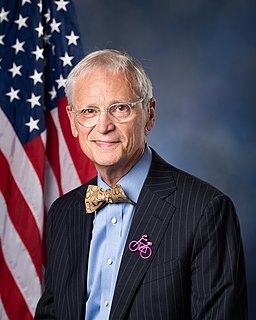A Quote by William Hague
We're not getting involved in terms of sending ground forces into Libya. Let's be clear about that. And indeed the UN Resolution forbids that. It says no foreign occupation of any part of Libya.
Related Quotes
Fortunately in Libya, there's only a few cities on the coast, because most of Libya is a desert. The fact of the matter is, we absolutely have to be - and not just with special forces - I mean, that's not going to work. Come on, you've got to go back to the invasion, when we pushed Saddam Hussein out of Kuwait. We have to be there on the ground in significant numbers. We do have to include our Muslim Arab friends to work with us on that. And we have to be in the air. And we - it should be a broad coalition made up of the kinds of people that were involved when we defeated Saddam.
President Chavez has always been a loyal friend of Gaddafi, assassinated in the crudest way possible. Europe should think about the bombings and the destruction of Libya that filled the country with terrorists. Who's truly ruling Libya's military and sending thousands of armed men to fight in Syria? It's Al Qaeda.
In the 38th chapter of Ezekiel, it says that the land of Israel will come under attack by the armies of the ungodly nations, and it says that Libya will be among them. Do you understand the significance of that? Libya has now gone Communist, and that's a sign that the day of Armageddon isn't far off.
China gets their oil from Libya. Why isn't China involved? They're going out spending billions of dollars a day on trying to take over the world economically. And we're spending billions and billions and billions of dollars on policing the world. Why isn't China involved with Libya? That - we don't get oil from Libya, China does.
I say that the United States of America is a unique experiment in history. I believe in American exceptionalism. I wasn't for sending ground forces into Libya. It would have been counterproductive, but we are an inspiration to these people. I know because I've looked them in the eyes, and they looked at me. They look to America for inspiration and leadership.
On April 14, 1986, when the Reagan administration launched an airstrike on Libya in clear violation of international law, Kissinger did the rounds on news shows to justify the bombing. The day after the bombing, Kissinger appeared on ABC's 'Good Morning America' to voice his 'total support.' Attacking Libya, he said, was 'correct' and 'necessary.'
I think what Mr. Trump has made clear is that he would not undertake optional wars, what I have called wars of choice, a la, say Iraq in 2003 or Libya, for the purposes of transforming another country. It's not clear whether Hillary Clinton, if she were to have the opportunity, would do such a thing again or whether she would have taken a - the lesson from both Iraq and Libya that we ought not to be undertaking those kinds of wars of choice.































